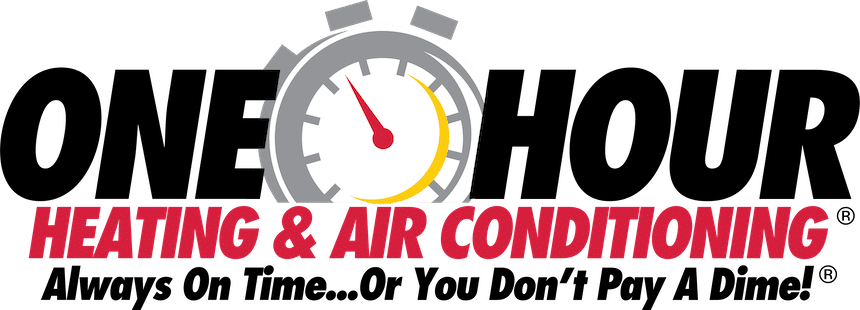HVAC Tips – Is your HVAC system primed to tackle the soaring humidity that summer brings? When the air feels like a warm, damp blanket, it’s not just about comfort—ensuring your HVAC system is in top condition is crucial for maintaining an efficient and effective operation.
Proper HVAC maintenance is not only essential for keeping your home comfortable but also for preventing costly repairs and extending the lifespan of your system. This guide will provide you with 10 essential HVAC tips that you should follow to manage humidity and enhance the performance of your cooling system during the most humid months of the year.
Whether you’re a seasoned homeowner or renting your first apartment, these HVAC tips will help you stay cool and save money on energy bills. Read on to discover how to optimize your HVAC system for humid summers.
Importance of HVAC Maintenance
Regular HVAC maintenance is essential to ensure your system operates smoothly and efficiently. It helps prevent breakdowns and extends the lifespan of your equipment. Routine checks and cleaning can catch potential issues early, saving you costly repairs in the long run.
High humidity poses unique challenges for HVAC systems. Excess moisture can strain your system, leading to inefficiency and higher energy bills. Humidity can also cause mold growth and poor indoor air quality. By maintaining your HVAC system, you can mitigate these issues and enjoy a comfortable home throughout the summer.
HVAC Tips #1: Change Air Filters Regularly
How often do you change your HVAC air filters? Regular filter changes are essential to maintain efficient airflow and indoor air quality.
How Often to Change Filters
It’s recommended to change your air filters every 1-3 months, depending on your home’s conditions. If you have pets or allergies, monthly changes might be necessary. For homes with fewer contaminants, every three months could suffice.
Benefits of Clean Filters
Clean filters improve airflow, making your HVAC system work more efficiently. This reduces energy consumption and can lower your utility bills. Clean filters also trap dust, pollen, and other particles, ensuring better air quality in your home.
Schedule Regular Maintenance Checks
Do you know the benefits of scheduling regular HVAC maintenance checks? Regular professional inspections can keep your system running at peak efficiency and help avoid unexpected breakdowns.
What a Technician Checks During Maintenance
During a maintenance check, a technician will inspect and clean various components of your HVAC system. This includes checking refrigerant levels, cleaning coils, inspecting the thermostat, and ensuring all electrical connections are secure. The technician will also lubricate moving parts and check for any signs of wear or damage.
Frequency of Maintenance Checks
It’s best to schedule maintenance checks twice a year: once in the spring before the cooling season and once in the fall before the heating season. Regular maintenance helps catch potential problems early and keeps your system running efficiently.
HVAC Tips #2: Keep Outdoor Units Clear of Debris
Do you know why keeping your outdoor HVAC unit clear of debris is crucial? Ensuring proper airflow around your unit can significantly enhance its performance and lifespan.
How to Clean Around Outdoor Units
Regularly check your outdoor unit for leaves, dirt, and other debris. Clear at least two feet around the unit to allow for adequate airflow. Trim any nearby shrubs or grass that might obstruct the unit. Gently hose off the unit’s exterior to remove dust and dirt, but avoid using high pressure, which can damage the fins.
Importance of Airflow
Proper airflow is essential for your HVAC system to function efficiently. Obstructions can cause the unit to overheat and work harder than necessary, leading to higher energy bills and potential system failure. Keeping the area around your outdoor unit clean ensures it can operate at peak efficiency.
HVAC Tips #3: Install Whole House Dehumidifiers
Have you considered the benefits of installing a whole-house dehumidifier? These devices work seamlessly with your HVAC system to control indoor humidity levels.
Benefits of Dehumidifiers
Whole house dehumidifiers help reduce excess moisture, preventing mold growth and improving indoor air quality. Lower humidity levels make your home feel cooler, allowing you to set your thermostat higher and save on energy costs. Additionally, these systems protect your home from damage caused by excess moisture, such as wood rot and peeling paint.
How They Work with Your HVAC System
A whole-house dehumidifier integrates with your existing HVAC system. It pulls in humid air, removes the moisture, and then circulates the dry air back into your home. This process not only improves comfort but also takes the strain off your HVAC system, allowing it to run more efficiently.
HVAC Tips #4: Optimize Thermostat Settings
Are you using your thermostat to its full potential? Optimizing your thermostat settings can enhance comfort and efficiency during humid summers.
Setting Temperatures for Efficiency
To maximize efficiency, set your thermostat to the highest comfortable temperature. The U.S. Department of Energy recommends 78°F when you’re home and awake. When you’re away or asleep, increase the temperature to reduce energy use. Every degree you raise the thermostat can save up to 3% on cooling costs.
Benefits of Programmable Thermostats
Programmable thermostats allow you to set schedules that match your daily routine. By automatically adjusting the temperature, you can ensure comfort when you’re home and save energy when you’re not. Some models even offer advanced features like remote control via smartphone apps, learning your preferences over time, and providing energy usage reports.
HVAC Tips #5: Ensure Proper Insulation
Have you considered how proper insulation can improve your HVAC efficiency? Ensuring your home is well-insulated is key to maintaining comfortable indoor temperatures and reducing energy costs.
How Insulation Helps HVAC Efficiency
Insulation acts as a barrier to heat flow, keeping your home cool in the summer and warm in the winter. It helps your HVAC system work less hard by preventing cool air from escaping and warm air from entering. This results in a more consistent indoor temperature and lower energy bills.
Types of Insulation to Consider
There are several types of insulation to consider for your home:
- Fiberglass Batts: Easy to install and cost-effective, ideal for walls, floors, and ceilings.
- Spray Foam: Provides excellent coverage and air sealing, best for irregular spaces and hard-to-reach areas.
- Blown-In Insulation: Suitable for attics and existing walls, it fills gaps and provides good thermal performance.
- Rigid Foam Boards: Used for exterior walls, basements, and roofs, they offer high insulating value with minimal thickness.
HVAC Tips #6: Monitor Energy Bills for Efficiency
Do you keep an eye on your energy bills? Monitoring your energy usage can help you spot potential issues with your HVAC system and ensure it’s running efficiently.
Identifying Issues Through Energy Bills
A sudden increase in your energy bill can indicate a problem with your HVAC system. It might be working harder than necessary due to issues like clogged filters, dirty coils, or refrigerant leaks. By tracking your energy bills, you can identify unusual spikes and address them promptly.
Steps to Take if Bills Increase
- Check Air Filters: Ensure they are clean and replace them if necessary.
- Inspect Thermostat Settings: Make sure your thermostat is set to an energy-efficient temperature.
- Schedule Maintenance: Have a professional inspect your system for issues.
- Seal Leaks: Check for and seal any air leaks around doors, windows, and ductwork.
- Consider Upgrades: If your system is old, upgrading to a more efficient model might be beneficial.
HVAC Tips #7: Inspect and Clean Condensate Drain Lines
Do you know why it’s essential to inspect and clean your HVAC system’s condensate drain lines? Regular maintenance of these lines helps prevent clogs and leaks, ensuring your system runs smoothly.
Preventing Clogs and Leaks
The condensate drain line removes moisture your HVAC system extracts from the air. Over time, dirt, dust, and algae can build up, causing clogs. A clogged drain line can lead to water damage, mold growth, and reduced system efficiency. Regular inspection and cleaning help prevent these issues, keeping your system in optimal condition.
How to Clean Drain Lines
- Turn Off the HVAC System: Ensure safety by shutting down your system.
- Locate the Drain Line: Find the PVC pipe near your outdoor unit.
- Use a Wet/Dry Vacuum: Attach the vacuum to the end of the drain line to remove clogs.
- Clean with Vinegar: Pour a mixture of vinegar and water into the drain line to kill algae and mold.
- Flush with Water: Use water to ensure the line is clear and free-flowing.
HVAC Tips #8: Improve Airflow Inside the Home
Are you aware of how essential proper airflow is for your HVAC system? Improving indoor airflow ensures your system operates efficiently and maintains comfort.
Keeping Vents and Registers Clear
Ensure all vents and registers are unobstructed by furniture, curtains, or other items. Blocked vents force your HVAC system to work harder, reducing its efficiency and potentially causing uneven cooling or heating. Regularly vacuum and dust around vents to keep them clean and free of debris.
Importance of Balanced Airflow
Balanced airflow throughout your home helps maintain a consistent temperature in every room. Ensure all vents are open and adjust them as needed to direct airflow where it’s needed most. This balance prevents hot and cold spots, improving overall comfort and reducing strain on your HVAC system.
HVAC Tips #9: Use Ceiling Fans
Have you thought about how ceiling fans can boost your HVAC system’s efficiency? Ceiling fans help circulate air, making your home more comfortable without overworking your HVAC system.
How Ceiling Fans Help with Cooling
Ceiling fans create a wind-chill effect, making the room feel cooler than it actually is. This allows you to set your thermostat a few degrees higher without sacrificing comfort. By using ceiling fans, you can reduce the workload on your HVAC system, which can lower energy consumption and extend the life of your equipment.
Adjusting Fan Settings for Seasons
For optimal performance, adjust your ceiling fan settings based on the season:
- Summer: Set the fan to rotate counterclockwise. This creates a breeze that cools the room.
- Winter: Set the fan to rotate clockwise at a low speed. This helps distribute warm air that rises to the ceiling, improving heating efficiency.
Using ceiling fans appropriately can enhance your HVAC system’s effectiveness and help maintain a comfortable home environment year-round.
HVAC Tips #10: Upgrade to a Smart Thermostat
Have you considered upgrading to a smart thermostat? This simple change can enhance your home’s comfort and energy efficiency.
Benefits of Smart Thermostats
Smart thermostats offer several benefits over traditional models. They learn your schedule and adjust temperatures automatically, saving you energy and money.
You can control them remotely via smartphone apps, ensuring your home is always at the perfect temperature when you arrive. Additionally, smart thermostats provide energy usage reports, helping you identify ways to further reduce your energy consumption.
Features to Look For
When choosing a smart thermostat, consider the following features:
- Learning Capability: Thermostats that adapt to your routines can optimize heating and cooling automatically.
- Remote Access: Ensure the model offers control through smartphone apps for convenience.
- Energy Reports: Look for models that provide detailed energy usage reports and suggestions for improvement.
- Compatibility: Check that the thermostat is compatible with your HVAC system.
- Voice Control: Some smart thermostats integrate with voice-activated systems like Amazon Alexa or Google Home for hands-free control.
Savannah-Specific HVAC Tips
Living in Savannah means dealing with high humidity levels. Are you prepared to keep your HVAC system running efficiently?
Addressing Savannah’s Humidity Levels
Savannah’s humid climate can put extra strain on your HVAC system. High humidity levels make it harder for your system to maintain comfortable indoor temperatures.
Installing a whole-house dehumidifier can help reduce moisture levels, improve air quality, and take the burden off your HVAC unit. Regularly checking and cleaning your condensate drain lines is also crucial to prevent clogs and leaks caused by excess humidity.
Recommended Maintenance Schedule
For optimal performance in Savannah’s climate, schedule HVAC maintenance checks twice a year, ideally in the spring and fall. This ensures your system is ready for the intense summer humidity and cooler winter months.
Regular maintenance includes checking refrigerant levels, cleaning coils, and inspecting ductwork for leaks. These steps help your system run efficiently, saving you money on energy bills.
Port Royal-Specific HVAC Tips
Do you know how Port Royal’s unique climate affects your HVAC system? Tailored HVAC tips can keep your system running efficiently in this coastal area.
Unique Climate Considerations for Port Royal
Port Royal’s coastal climate brings high humidity, salty air, and occasional strong winds. The salty air can cause corrosion in your HVAC system, leading to premature wear and tear. High humidity levels can also strain your system and affect indoor air quality. It’s important to take steps to protect your HVAC system from these specific challenges.
Tailored HVAC Tips for Local Homeowners
- Use Anti-Corrosion Coatings: Apply protective coatings to your outdoor unit to shield it from salt-induced corrosion.
- Install a Whole-House Dehumidifier: This helps manage humidity levels, improving comfort and reducing strain on your HVAC system.
- Schedule Regular Maintenance: Have your system inspected and serviced twice a year, focusing on cleaning coils and checking for corrosion.
- Check for Air Leaks: Seal any gaps around windows and doors to prevent humid air from entering your home, which can reduce the efficiency of your HVAC system.
Following these HVAC tips can help you maintain an efficient and long-lasting HVAC system in Port Royal.
Hardeeville-Specific HVAC Tips
How does Hardeeville’s weather impact your HVAC system? Understanding local climate patterns can help you keep your system running efficiently.
Addressing Hardeeville’s Weather Patterns
Hardeeville experiences hot summers and mild winters, with significant humidity levels. The combination of heat and humidity can overwork your HVAC system, leading to higher energy bills and potential breakdowns. Preparing your system for these conditions is crucial for maintaining comfort and efficiency.
Suggested HVAC Practices for Efficiency
- Regular Maintenance: Schedule maintenance checks twice a year to ensure your system is ready for the summer heat and winter chill. Focus on cleaning coils, checking refrigerant levels, and inspecting ductwork for leaks.
- Use a Programmable Thermostat: Set your thermostat to higher temperatures when you’re away and cooler when you’re home. This reduces the load on your HVAC system and lowers energy costs.
- Seal and Insulate: Proper insulation and sealing gaps around windows and doors prevent hot air from entering your home, making your HVAC system work more efficiently.
- Install a Dehumidifier: Combat Hardeeville’s humidity with a whole-house dehumidifier, improving indoor air quality and reducing the strain on your HVAC system.
- Check Outdoor Units: Ensure your outdoor unit is clear of debris and has adequate airflow. This prevents overheating and improves efficiency.
By following these practices, you can ensure your HVAC system operates efficiently, keeping your home comfortable throughout the year.

FAQs about HVAC Tips
- How often should I change my air filter?
You should change your air filter every 1-3 months. Homes with pets or allergies may need more frequent changes. Regularly changing your air filter improves airflow and indoor air quality, helping your HVAC system run efficiently.
- What are the benefits of a whole-house dehumidifier?
A whole-house dehumidifier reduces excess moisture, preventing mold growth and improving air quality. It makes your home feel cooler, allowing you to set your thermostat higher and save on energy costs. Dehumidifiers also protect your home from moisture damage.
- How can I tell if my HVAC system is efficient?
Monitor your energy bills for sudden increases, listen for unusual noises, and check if your system struggles to maintain a consistent temperature. Regular professional maintenance can also help ensure your HVAC system operates efficiently.
- What steps can I take if my energy bills increase?
Check and replace air filters, inspect thermostat settings, schedule a maintenance check, seal air leaks, and consider upgrading to a more efficient HVAC model if your system is old. These steps can help reduce energy consumption and costs.
- Why is regular HVAC maintenance important?
Regular maintenance keeps your HVAC system running efficiently, prevents unexpected breakdowns, and extends its lifespan. It helps catch potential issues early, saving you from costly repairs and ensuring comfort throughout the year.











